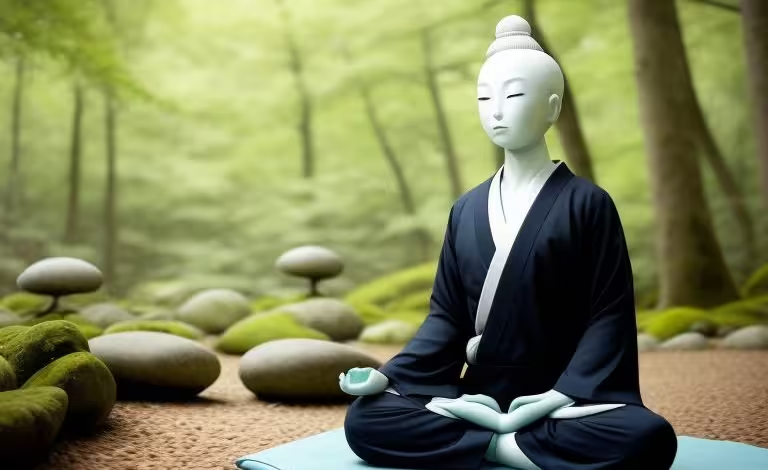
Brain Optimization: Exploring the Japanese Techniques for Mental Clarity and Focus
In today’s fast-paced world, optimizing brain function has become a priority for many who seek to improve mental clarity, focus, and overall cognitive performance. While there are countless methods available, Japanese techniques for brain optimization stand out for their unique and holistic approach. Rooted in centuries-old practices, these techniques are designed to enhance mental well-being, improve memory, and boost productivity. In this article, we’ll explore some of the most effective Japanese brain optimization techniques and how you can incorporate them into your daily life.
The Philosophy Behind Japanese Brain Optimization
Japanese culture places a strong emphasis on balance, mindfulness, and the harmonious connection between mind and body. This philosophy extends to brain optimization, where the focus is not just on cognitive enhancement but also on achieving mental tranquility and emotional balance.
Mind-Body Connection
In Japanese tradition, the mind and body are seen as interconnected. Optimizing brain function involves more than just intellectual exercises; it requires a holistic approach that includes physical well-being, emotional health, and spiritual practices.
Focus on Mindfulness
Mindfulness, or zanshin, is a core concept in Japanese culture. It’s about being fully present in the moment, aware of your surroundings, and maintaining a calm and focused mind. This mindfulness is key to optimizing brain function, as it helps reduce stress and enhance mental clarity.
Japanese Techniques for Brain Optimization
Let’s delve into some of the most renowned Japanese techniques for enhancing brain function. These practices are simple, yet powerful, and can be easily integrated into your daily routine.
1. Kaizen: The Art of Continuous Improvement
Kaizen is a Japanese philosophy that translates to “continuous improvement.” While it’s often associated with business practices, kaizen can be applied to personal development, including brain optimization.
How Kaizen Improves Brain Function
- Small, Consistent Changes: The idea behind kaizen is to make small, consistent changes that lead to significant improvements over time. This approach can be applied to brain optimization by gradually incorporating new habits that enhance cognitive function, such as learning new skills or practicing memory exercises.
- Daily Habits: Rather than making drastic changes, kaizen encourages daily habits that contribute to brain health. This could include reading a few pages of a book each day, practicing a language, or engaging in puzzles and brain games.
2. Forest Bathing (Shinrin-yoku): Reconnecting with Nature
Shinrin-yoku, or forest bathing, is a Japanese practice that involves immersing oneself in nature to improve mental and physical well-being. This technique has been scientifically proven to reduce stress, lower blood pressure, and improve mood, all of which contribute to better brain function.
The Benefits of Forest Bathing
- Reduced Stress: Spending time in nature helps lower cortisol levels, the hormone associated with stress. Lowering stress can lead to improved cognitive function and a clearer mind.
- Increased Focus: The calming effect of nature can enhance focus and concentration. By reducing mental fatigue, shinrin-yoku helps optimize brain function.
- Enhanced Creativity: Nature has a way of sparking creativity. When the mind is free from distractions, it can wander and come up with new ideas and solutions.
How to Practice Forest Bathing
- Find a quiet forest or park where you can disconnect from technology and immerse yourself in nature.
- Take slow, deep breaths and focus on your surroundings—the sounds of birds, the rustle of leaves, and the scent of the forest.
- Spend at least 30 minutes to an hour in nature, allowing your mind to relax and your senses to sharpen.
3. Zazen Meditation: Cultivating Mental Clarity
Zazen, a form of seated meditation, is central to Zen Buddhism and is widely practiced in Japan. This meditation technique is designed to cultivate mental clarity, focus, and inner peace.
How Zazen Optimizes the Brain
- Improved Focus: Zazen requires maintaining a single-pointed focus, often on the breath, which trains the mind to concentrate better in everyday tasks.
- Emotional Balance: By observing thoughts without attachment, Zazen helps reduce emotional reactivity, leading to a more balanced and calm mind.
- Enhanced Cognitive Function: Regular meditation has been shown to increase gray matter in the brain, improving memory, learning, and decision-making abilities.
How to Practice Zazen
- Find a quiet space where you can sit comfortably. You can use a cushion (zafu) to support your posture.
- Sit in a cross-legged position, with your spine straight and hands resting in your lap.
- Focus on your breath, counting each inhale and exhale. If your mind wanders, gently bring your attention back to your breath.
- Start with a few minutes each day and gradually increase the duration as you become more comfortable with the practice.
4. Kintsugi: Embracing Imperfections
Kintsugi is the Japanese art of repairing broken pottery with gold, creating something more beautiful for having been broken. This philosophy can be applied to brain optimization by embracing imperfections and learning from past experiences.
Kintsugi and Mental Resilience
- Embrace Challenges: Rather than viewing mistakes or failures as setbacks, kintsugi teaches us to see them as opportunities for growth. This mindset can help strengthen mental resilience and enhance problem-solving abilities.
- Value Imperfections: Recognizing and accepting imperfections—both in ourselves and in others—can reduce the pressure of perfectionism, leading to a more relaxed and open-minded approach to life.
5. Ikigai: Finding Your Purpose
Ikigai is a Japanese concept that translates to “a reason for being.” It’s about finding joy and fulfillment in life by aligning your passions, talents, and values with what the world needs.
How Ikigai Optimizes Brain Function
- Sense of Purpose: Having a clear purpose in life can reduce stress and increase motivation, leading to better mental health and cognitive function.
- Holistic Well-being: Ikigai encourages a balanced life, where work, relationships, and personal interests are in harmony. This balance contributes to overall brain health.
Discovering Your Ikigai
- Reflect on what you love doing, what you’re good at, and how you can contribute to the world.
- Write down your thoughts and look for intersections between your passions, skills, and societal needs.
- Make gradual changes to align your daily activities with your ikigai.
Integrating Japanese Brain Optimization Techniques into Your Life
Incorporating these Japanese techniques into your daily routine doesn’t have to be overwhelming. Start small, choose one or two practices that resonate with you, and gradually integrate them into your lifestyle. Over time, you’ll notice improvements in your mental clarity, focus, and overall cognitive function.
Create a Routine
- Morning Rituals: Begin your day with a few minutes of Zazen meditation or a brief practice of mindfulness to set a calm and focused tone for the day.
- Daily Walks: Incorporate shinrin-yoku into your routine by taking daily walks in a nearby park or nature reserve.
- Continuous Learning: Apply the principles of kaizen by dedicating time each day to learning something new or practicing a skill.
Mindful Breaks
- Take regular breaks throughout the day to practice mindfulness, whether through deep breathing, stretching, or simply observing your surroundings.
- Use these breaks as an opportunity to reset your mind and maintain mental clarity throughout the day.
Reflect and Adapt
- At the end of each week, reflect on your practices and how they’ve impacted your mental state. Adjust your routine as needed to optimize your brain function further.
Conclusion: The Power of Japanese Techniques for Brain Optimization
Japanese techniques for brain optimization offer a unique blend of ancient wisdom and practical application. By embracing practices like kaizen, shinrin-yoku, Zazen meditation, kintsugi, and ikigai, you can cultivate a more focused, clear, and resilient mind. These techniques are not just about enhancing cognitive performance—they’re about achieving a deeper sense of balance, purpose, and well-being. Start integrating these practices into your life today and experience the transformative power of Japanese brain optimization.



